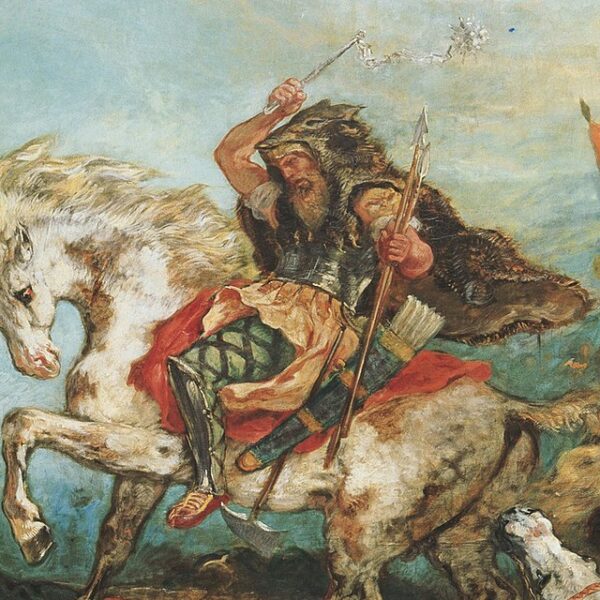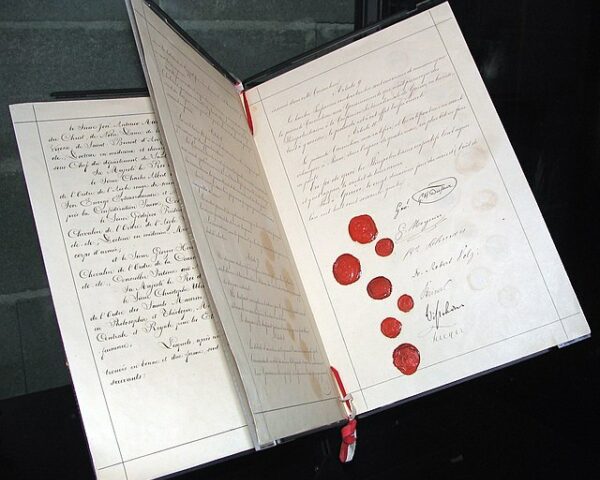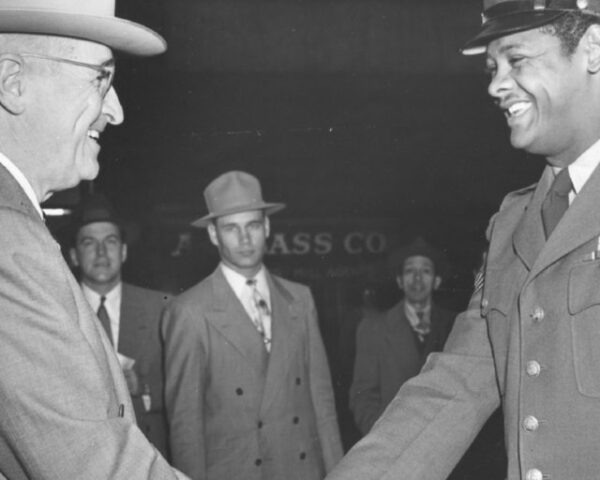On 8th June 452 AD, the Roman Empire’s biggest bogeyman came to invade Italy: Attila.
Referred to as “scourge of God” by his opponents, Attila’s empire stretched thousands of miles from the Ural River to the Rhine River and from the Danube River to the Baltic Sea. Nearly mentioning his name would strike fear into the hearts of many in Rome.
Medievalist historians have written that “the reason behind the invasion comes from events two years earlier – Honoria, the sister of Emperor Valentinian III, had secretly sent Attila a message asking him to help her escape from a forced betrothal with a Roman senator. Along with the message she sent him her engagement ring, a sign that Attila took to mean that she wanted to marry him. Shrewdly, Attila accepted this marriage proposal and demanded from the Emperor a dowry consisting of half of the Western Roman Empire. Valentinian refused, leading to hostility between the Huns against Rome and its allies.
Now in 452, Attila had come to Italy to enforce his marriage claims, and the Hun army ravished much of the northern part of the country, even capturing and razing the city of Aquileia after a three-month siege.
Some sources from the period credit an embassy sent by Emperor Valentinian with getting the Huns to leave Italy. In particular, it was said that Pope Leo I who convinced Attila to return back beyond the Danube River to the Huns territory. The chronicler Prosper explains, ‘Our most blessed Pope Leo – trusting in the help of God, who never fails the righteous in their trials – undertook the task, accompanied by Avienus, a man of consular rank, and the prefect Trygetius. And the outcome was what his faith had foreseen; for when the king had received the embassy, he was so impressed by the presence of the high priest that he ordered his army to give up warfare and, after he had promised peace, he departed beyond the Danube.’
Many historians have doubted that the Pope would have somehow convinced Attila to return home. They point to other sources, such as Hydatius, who notes ‘The Huns, who had been plundering Italy and who had also stormed a number of cities, were victims of divine punishment, being visited with heaven-sent disasters: famine and some kind of disaster … Thus crushed, they made peace with the Romans and all retired to their homes.’
Italy’s famine in 451 had a lasting impact on food supplies and when Attila decided to attack Rome, he found it difficult to live off of the land, especially because his invasion of northern Italy only worsened the situation.
Meanwhile, while their leader focused on Italy, an East Roman army led by Aetius defeated the Huns who were left behind by Attila to protect their territories. As a result, Attila felt significant pressure to leave Italy without ever venturing south of the Po River.
The Hun ruler did not live too long after his failures in Italy.
British historian E. A. Thompson wrote, “In 453 Attila was intending to attack the Eastern Empire, where the new emperor Marcian had refused to pay the subsidies agreed upon by his predecessor, Theodosius II. But during the night following his marriage, Attila died in his sleep. Those who buried him and his treasures were subsequently put to death by the Huns so that his grave might never be discovered. He was succeeded by his sons, who divided his empire among them.
Priscus, who saw Attila when he visited his camp in 448, described him as a short, squat man with a large head, deep-set eyes, flat nose, and a thin beard. According to the historians, Attila was, though of an irritable, blustering, and truculent disposition, a very persistent negotiator and by no means pitiless. When Priscus attended a banquet given by him, he noticed that Attila was served off wooden plates and ate only meat, whereas his chief lieutenants dined off silver platters loaded with dainties. No description of his qualities as a general survives, but his successes before the invasion of Gaul show him to have been an outstanding commander.”
Most experts consider Attila to be one of the greatest warriors in history, having expanded the rule of the Huns dramatically and holding a near-perfect record in battles.






